Wicked problems and the transformation of the information environment compel us to rethink how knowledge is used in societal decision-making. The improvement of the balance of information supply and demand and the strengthening of the position of scientific knowledge are important goals, but they alone are not enough. A new mindset, new ways of working at the knowledge-policy interface and structures that facilitate these new ways are required.
The perception of decision-making as a process based on knowledge and expertise must be expanded. Decision-making must be able to simultaneously compile diverse knowledge and expertise, increase people’s engagement and make good use of the new opportunities offered by digitisation. Those responsible for preparing decision-making must be familiar with the different approaches to knowledge use and know how to plan knowledge use in a way which best suits each situation.
Well-functioning decision-making in an increasingly multidimensional information environment and an arena of competing values and interests is vital for our future. Although Finland is often considered to be a pioneering country in research, education and good governance, the prevailing ways of using knowledge in decision-making and developing knowledge use are no longer enough for resolving the major challenges ahead of us. Various parties must develop ways of working at the knowledge-policy interface, co-operating more closely with each other, and the strategic weight of developing the interface must be increased in society.
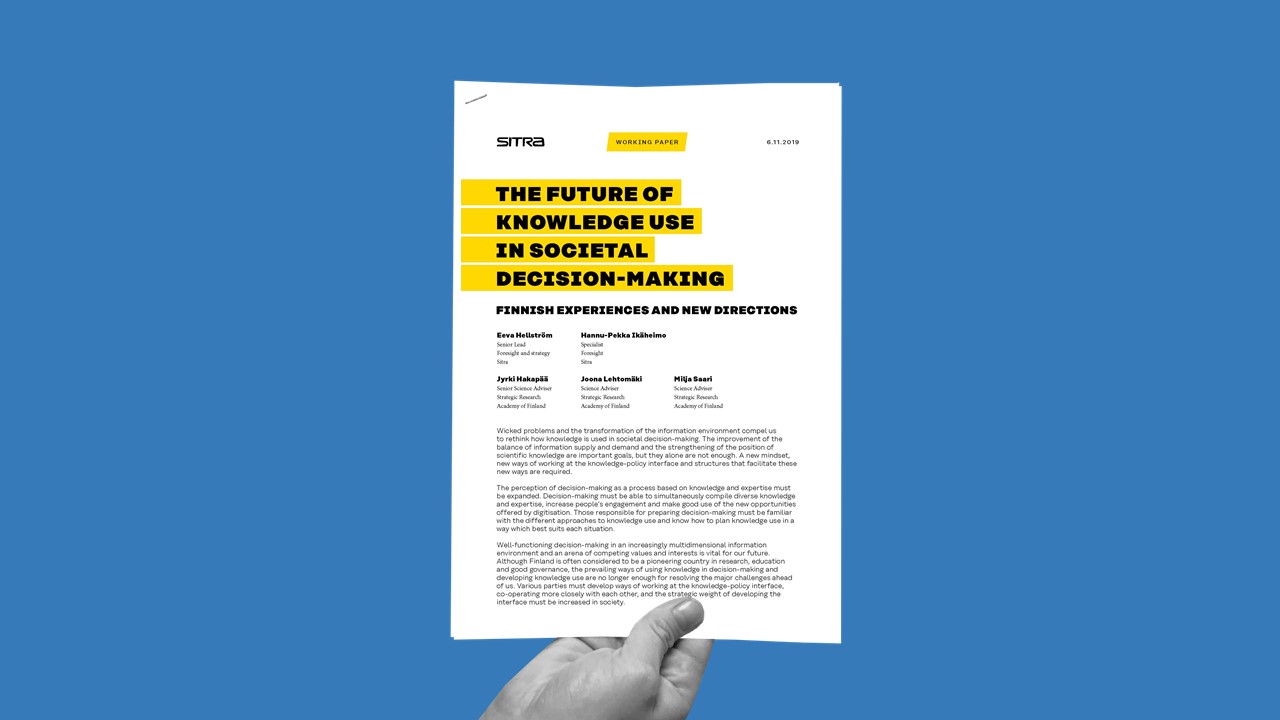




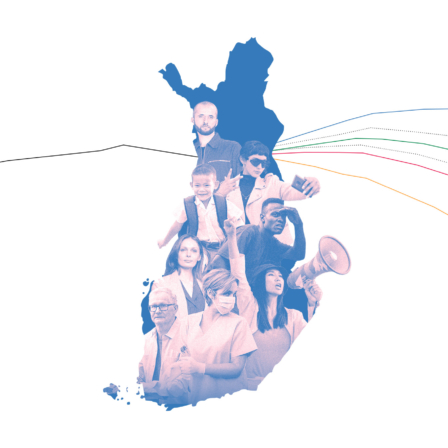
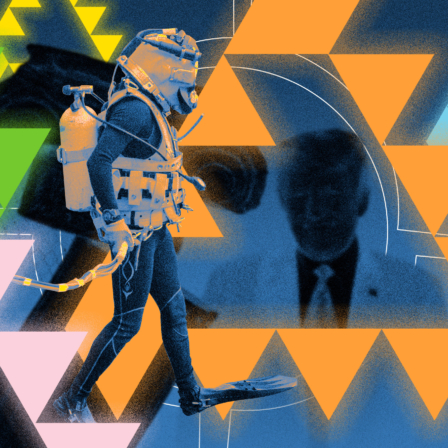
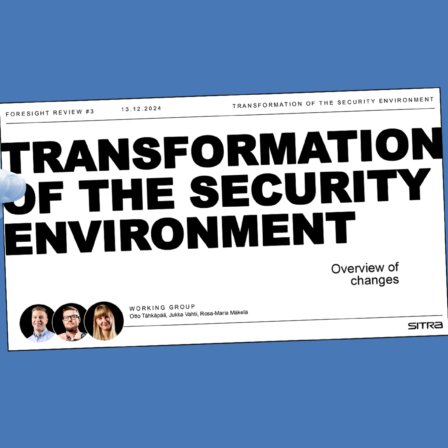



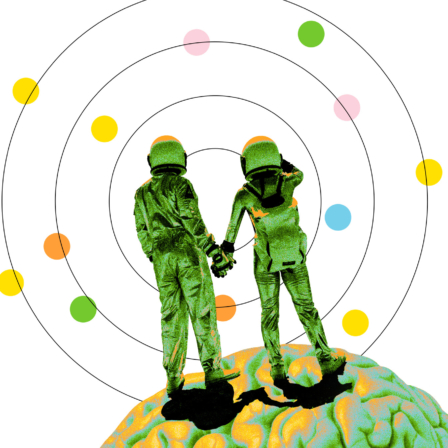




Recommended
Have some more.